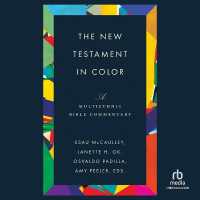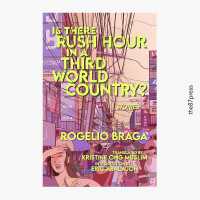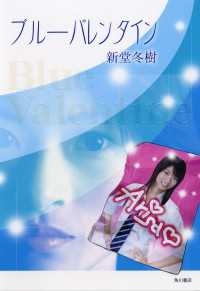- ホーム
- > 洋書
- > 英文書
- > Literary Criticism
Full Description
After Words investigates the ways in which the suicide of a writer informs critical interpretations of his or her works. Suicide is a revision as well as a form of authorship, both on the part of the author, who has written his/her final scene and revised the 'natural' course of his/her life, and on the part of the reader, who must make sense of this final act of writing. Focusing on four twentieth-century Italian writers (Guido Morselli, Amelia Rosselli, Cesare Pavese, and Primo Levi), Elizabeth Leake examines their personal correspondence, diaries, and obituaries as well as popular and academic commemorative writings about them and their works in order to elucidate the ramifications of their suicides for their readership. Arguing that authorial suicide points to the limitations of those critical stances that exclude the author from the practice of reading, Leake's insightful re-reading of these authors and their texts shows that in the aftermath of suicide, an author's life and death themselves become texts to be read.
Contents
Acknowledgments
Introduction: The Death of the Author
The Posthumous Author: Guido Morselli, Giuseppe Rensi, Jacques Monod
The Corpus and the Corpse: Amelia Rosselli, Jacques Derrida, Sylvia Plath, Sarah Kofman
The Post-Biological Author: Cesare Pavese, Gianni Vattimo, Emanuele Severino
Commemoration and Erasure: Primo Levi, Giorgio Agamben, Avishai Margalit
Postscript: Learning from the Dead
Notes
Works Consulted
Index








